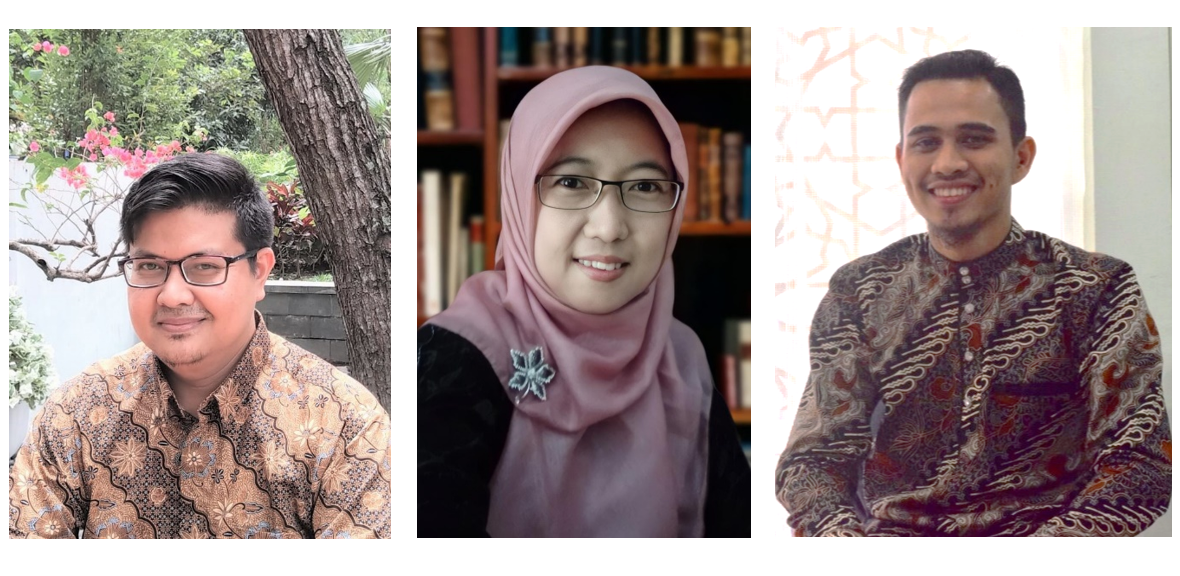In May 2021, the International Committee of the Red Cross (ICRC) in collaboration with the Journal al-Jamiah and the International Institute of Advanced Islamic Studies (IAIS) launched a Call for Papers under the theme “Contributions of South East Asian Ulama to the Development of Rules of Warfare in Islam”. The aim was to seek local and regional contributions to the topic of correspondence between Islamic law and International Humanitarian Law (IHL), which is part of the ICRC core mandate.
21 abstracts were submitted by scholars from Indonesia, Malaysia, Singapore and the Philippines. From these abstracts, eight completed papers were delivered to the jurors all of which enhanced the academic body of work on the contribution of Southeast Asian Islamic scholars to limiting the means and method of warfare and protecting civilians in times of conflict. The competition is part of a multi-year project to encourage research in Southeast Asia on the correspondence between Islamic law and IHL.
Now, the ICRC, Journal Al-Jamiah and IAIS are proud to announce the top three winning papers.
The first-place winner is Muhammad Yuanda Zara, Ph.D, who serves as a lecturer of history at Yogyakarta State University (UNY). His paper, titled “Muhammadiyah’s Views on the Protection of Civilians during the Japanese Invasion of the Netherlands Indies, 1941-1942”, was hailed in consensus by the jury as the top paper within the competition. The paper explores Muhammadiyah’s thoughts on the protection of civilians in war in a so-far neglected context, namely the Japanese invasion of the Netherlands Indies in 1941-1942. By examining edicts from the Central Board of Muhammadiyah as well as the writings of individuals affiliated with Muhammadiyah published by Adil, the study argues that Muhammadiyah was highly attentive to efforts to protect civilians in times of war by basing its thoughts on the interplay between Islamic principles and modern ideas about the rights of non-combatants in battle.
“The paper gives a real contribution to the topic which was set by the organizers to seek the local and regional contribution from ulama and Islamic organisations to the discourse on the correspondence between rules of warfare in Islam with the contemporary law of war which is well known as International Humanitarian Law,” states Prof. Ratno Lukito, Chief Editor of Journal al-Jamiah and Head Juror.
Second place goes to Dr. Ulya Fikriyati, Lc., M.Ag, a scholar from Institut Ilmu Keislaman Annuqayah (INSTIKA) Guluk Guluk, Madura who wrote in collaboration with Ah. Fawaid, a lecturer of Institut Agama Islam Negeri (IAIN) Madura, East Java. Her paper, titled “Saving Life and Limiting Means and Methods of Warfare: An Overview from Five Indonesian Tafsir”, discusses the views of five Indonesian mufassir (authors of Qur’anic exegesis) on saving life and limiting means and methods of warfare. Issues including the protection of civilians during warfare were analysed in great detail from five major tafsir, namely Tarjumān al-Mustafīd authored by Syekh ‘Abd al-Ra’ūf al-Singkilī (1619-1693), Tafsīr al-Munīr Marāḥ Labīd by Syekh Nawawī al-Bantani (1813-1879), Tafsir al-Azhar by Buya Hamka (1908-1981), Tafsir al-Miṣbāḥ by M. Quraish Shihab (1944-present), and Tafsir Firdaws al-Naʻīm by Kiai Muḥammad Ṭayfūr ‘Alī Wafā (1964-present).
The jurors explain that the paper, submitted by Ulya and Fawaid in Bahasa Indonesian, is a very deep and detailed analysis of five major Indonesian tafsir, as well as a rare and important contribution to the topic. “We are really amazed by the way Ulya and Fawaid analysed the topic and the great detail in which they dealt with the major tafsirs covered. Such a contribution definitely required great effort and sharp eyes from the authors and that is really appreciated by the jurors,” says Prof. Mohamed Azam Mohamed Adil, a juror from IAIS Malaysia.
Third place goes to Muhammad Adam Abd. Azid, a Malaysian scholar working at the Research Centre of Al-Quran and Al-Sunnah, Faculty of Islamic Studies, National University of Malaysia (UKM). His paper titled “The Trajectory of the Jihad Discourse in the Malay World: An Analysis on the Baḥr Al-Mādhī By Muḥammad Idrīs al-Marbawī”, analyses the representation of the terms jihad and warfare in the Baḥr al-Mādhī, a book written by Muḥammad Idrīs al-Marbawī (1896-1989), as well as al-Marbawi’s contribution to Malay community understanding jihad in pre independence period of Malaysia through his commentary and translation of the hadith of jihad in Baḥr al-Mādhī.
The jurors see the paper as an important contribution to the discourse on the well-known Malaysian ulama, who is not only a translator of an important book on hadith called Jāmi‘ al-Tirmidhī by Imam at-Tirmidhi but also gave a commentary as a guidance to Malay-speaking populations on religious matters. “Al-Marbawi is a very important ulama in the region and his contribution to religious teaching and guidance in the region cannot be ignored. We’re glad that Adam wrote on Al-Marbawi and his contribution in the topic relevant to our competition,” states Dr Nur Ikhwan, a juror from the State Islamic University (UIN) Sunan Kalijaga.
“The winning papers in this competition will be published in the prestigious Journal al-Jamiah after going through their internal editorial selection and others will be included in local and regional conferences conducted by the ICRC in collaboration with Journal al-Jamiah and IAIS,” Dominic Earnshaw, the ICRC Regional Coordinator on Humanitarian Affairs says. “Three prize winners and the other five selected papers will get their prizes and certificates from the organisers and we hope this kind of initiative will encourage more interest and further research on the topic and will enrich local and regional content on Islam and IHL.”

